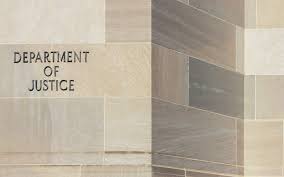DOJ Reforms Corporate Investigations and Monitorships (Part II of III)

For years, companies have dreaded DOJ’s potential appointment of a corporate monitorship as part of a criminal resolution. Companies have often complained about the experience, citing burdensome and sometimes unnecessary changes being required as part of a corporate monitorship.
On the other hand, some companies who have completed a monitorship will acknowledge that the corporate monitor helped the company establish effective ethics and compliance program improvements. Often, however, the cost of a corporate monitor has been burdensome in terms of time and cost.
On the one extreme was the Apple antitrust case where the relationship between the corporate monitor and Apple became a disaster, filled with recriminations, resistance and ultimately litigation. On the other extreme, some companies have cited the beneficial impact of a corporate monitor and the significant improvements to their compliance program.
Much of it depends on personalities and corporate embrace of the need for change. If the corporate monitor operates in an environment where change is expected, the corporate monitor can be successful. By contrast, if the company is continuing to resist the need for change during the monitorship, those situations can become difficult.

The Trump Administration is now intent on changing the corporate monitor tool. As part of its new White Collar Enforcement Program, AAG Galeotti announced several significant changes to the monitorship process. At the heart of DOJ’s concern is the “overbroad and unchecked corporate and white-collar enforcement burdens” imposed on U.S. businesses.” To DOJ, the “vast majority” of businesses are legitimate enterprises and prosecutors must avoid overreach that “punishes risk-taking and hinders innovation.”
Criminal Investigations
With respect to criminal investigations, AAG Galeotti underscored that “investigations into corporate crime can linger for years and, at times, with little meaningful progress.” Accordingly, he directed prosecutors to take all reasonable steps to minimize the length and collateral impact of their investigations, and to bring the bad actors to justice swiftly.
Corporate Resolutions
AAG Galeotti emphasized that corporate resolutions with companies that cooperate and remediate should include a term that is “appropriate and necessary” given the severity of the misconduct, the company’s cooperation and remediation and the effectiveness of the company’s compliance program at the time of the resolution. Under the new CEP, the term should not exceed three years except in rare cases, and prosecutors should continue to monitor corporate performance to determine if the resolution (non-prosecution agreement, deferred prosecution agreement of sentence imposed after a guilty plea) can be terminated early.
Corporate Monitors

Under the Administration’s new Corporate Enforcement Program, an independent compliance monitor should only be imposed when “necessary,” that is, when a “company cannot be expected to implement an effective compliance program or prevent recurrence of the underlying misconduct without such heavy-handed intervention.” When imposed, the monitorship should be narrowly tailored to achieve the necessary goals while minimizing expense.
To this end, AAG Galeotti announced the issuance of a new corporate monitor selection memorandum that: clarifies the factors prosecutors needed to review when considering a monitor, and that, if imposed, the monitor’s scope of review and mandates is narrowly tailored to address the risk of recurrence and reduce unnecessary costs.
The Criminal Division also announced that it is reviewing all existing monitorships to make case specific determinations of whether each monitor is still necessary.
















1 Response
[…] [View source.] […]